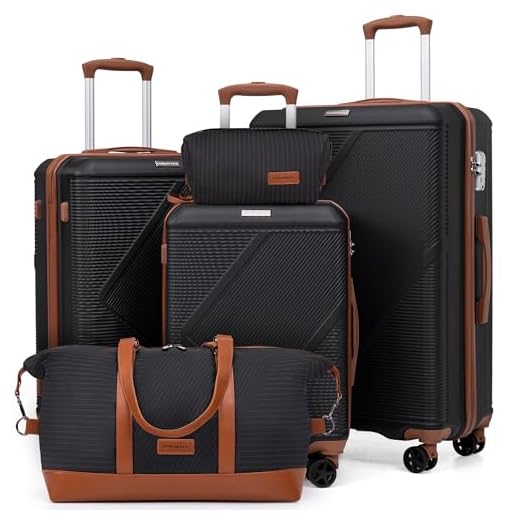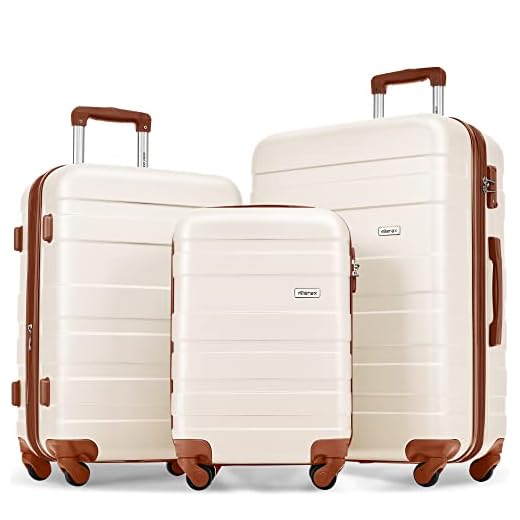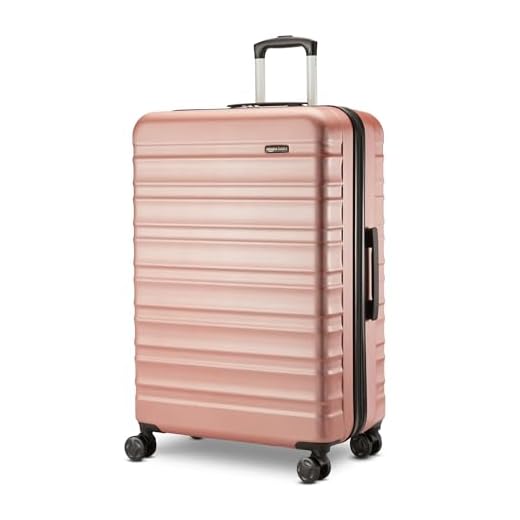



To refer to more than one suitcase, the term “bags” should be utilized instead. English does not allow for “luggage” to be inflected for number, and it remains a collective noun regardless of quantity. Therefore, if you possess several pieces, simply state “bags” or “pieces of luggage” in conversation.
In contexts where you need to clarify quantity, phrases like “two pieces of baggage” or “multiple suitcases” serve well. This specificity adds clarity and ensures understanding, especially in travel-related discussions. Consider using variations such as “travel cases” or “suitcases” to match the context and avoid repetitiveness.
When discussing travel scenarios, it is advisable to focus on exact quantities rather than generalizations. This approach enhances clarity in communication and facilitates better logistical arrangements when dealing with transportation or accommodations.
Can Luggage Be Plural?
Referring to bags and suitcases collectively as “pieces of luggage” is standard when highlighting multiple items. Instead of using an incorrect form like “luggages,” use “pieces of baggage” or “bags.” Language supports the flexibility to avoid misinterpretation without losing clarity.
For instance, in a sentence like “I have three bags,” it is clear and grammatically correct. Alternatively, you can specify, “I have three pieces of luggage,” to maintain proper structure while communicating quantity. This approach ensures the message is conveyed accurately.
In professional contexts related to travel or shipping, using precise terms can enhance communication. Instead of mistakenly pluralizing a term often viewed as singular, opt for variations that clearly delineate the number such as “multiple suitcases” or “various types of baggage.”
Adopting this syntax can also help in organizing thoughts, especially during discussions regarding travel items, their limits, or associated fees. Clear usage eliminates confusion and ensures a thorough understanding.
Understanding the Singular and Plural Forms of Baggage
The term “baggage” is typically used as an uncountable noun, which means it does not have a distinct plural form. While you may encounter phrases like “two pieces of baggage,” the word itself remains unchanged regardless of quantity. To express multiple bags, it’s effective to specify the count with a descriptor, such as “two bags” or “three suitcases.” This approach maintains clarity without the need for a separate plural form.
Usage in Different Contexts

In situations involving travel, using “baggage” denotes both individual items and the collective set of belongings. For example, an announcement at an airport may refer to “baggage claim,” which encompasses all the items rather than emphasizing individual pieces. This convention is standard across various forms of English, including British and American dialects.
Alternative Expressions
When discussing multiple items, consider synonyms such as “cases,” “bags,” or “suitcases.” These terms provide flexibility in conversation and writing. Instead of saying, “I have a lot of baggage,” you might say, “I have multiple bags.” Clarity can be enhanced by specifying the number of items or using an alternative term, ensuring effective communication around personal belongings.
When to Use ‘Luggage’ vs. ‘Luggages’
Utilize “luggage” when referring to bags collectively, regardless of quantity. For example, when discussing your travel needs, state, “I have all my luggage ready.” It conveys a more comprehensive view, encapsulating all bags without specifying numbers.
The term “luggages” is nonstandard in English. It’s best to avoid this form entirely, even in informal contexts. Instead, consider phrases like “pieces of luggage” or simply “bags” when precision is required in describing individual items.
Alternative Terms
In various scenarios, you might choose synonyms. Use “baggage” interchangeably as it similarly denotes items that accompany travelers. For instance, saying “My baggage is checked” can effectively replace the use of “luggage.”
Contextual Usage
Applying the singular form can enhance clarity, especially when referring to specific travel setups. An example would be, “This backpack is my main luggage,” providing a precise indication of one primary item. In a different context, to discuss multiple items, you could say, “I packed several pieces of luggage,” ensuring there’s no confusion.
For additional recommendations, check out the best choice products 9ft steel half patio umbrella for outdoor or visit the best aquarium in san francisco.
Common Misconceptions About Luggage in Everyday Language
A widespread belief is that the term for a bag used for travel can take an “s” for pluralizing. This confusion arises because many assume that all nouns follow the same rules for plurality. However, this word, derived from a French origin, is treated as a collective noun, thus remaining unchanged in its form regardless of quantity.
Another misconception involves the interchangeability of the word with “bags” or “cases.” While these alternatives are valid, they denote specific types of containers, whereas the initial term refers to a broader category encompassing various travel items. This distinction is crucial for clarity in communication.
Some may argue that regional dialects influence the usage of these terms, leading to varied acceptance of pluralization. Though dialectical variations do exist, adherence to standard language rules remains paramount in formal contexts.
Lastly, the assumption that all travel-related terms can be treated similarly contributes to confusion. It’s imperative to recognize that not all items carry the same grammatical rules, and awareness of proper usage enhances both spoken and written expression.
How Luggage Terminology Differs Across Languages
Understanding terminology related to travel bags varies significantly between languages. Familiarity with these distinctions can enhance communication, especially in multilingual contexts.
Here are some key differences:
- English: The term ‘luggage’ is used as a collective noun, while ‘bags’ or ‘suitcases’ may refer to individual items.
- French: The word ‘bagages’ is also a collective noun. However, a suitcase is referred to as ‘valise,’ emphasizing specific types.
- Spanish: ‘Equipaje’ serves as a collective term for travel items, whereas individual pieces like suitcases are called ‘maletas.’
- German: ‘Gepäck’ denotes collective baggage. For individual pieces, ‘Koffer’ or ‘Tasche’ are commonly used.
- Italian: The term ‘bagagli’ refers to collective items. Specific suitcases are ‘valigie’ or ‘bagagli a mano’ for carry-on types.
In Japanese, ‘荷物’ (nimotsu) is a general term for baggage, while ‘スーツケース’ (sūtsukēsu) is specifically for suitcases. In Chinese, ‘行李’ (xínglǐ) encompasses all luggage, while ‘手提包’ (shǒutíbāo) refers specifically to hand luggage.
Understanding these nuances aids in effective travel planning and smooth interactions across different cultural environments. Language proficiency in these terms is beneficial for both travelers and industry professionals.
FAQ:
Can the word ‘luggage’ be used in plural form?
No, the word ‘luggage’ is considered an uncountable noun in English. This means it does not have a plural form. When referring to multiple bags or suitcases, one typically uses the term ‘pieces of luggage’ or simply ‘luggage’ to describe the total amount.
How can I refer to several bags if ‘luggage’ cannot be pluralized?
When you want to discuss multiple items of luggage, you can say ‘pieces of luggage’ or ‘bags.’ For example, you might say, “I have three pieces of luggage” or “I packed two bags.” This allows you to indicate quantity without using ‘luggage’ in the plural.
Why is ‘luggage’ an uncountable noun?
The term ‘luggage’ is classified as uncountable because it represents a collective concept rather than individual items. It denotes a collection of bags, suitcases, and personal belongings that travelers bring with them. Since it refers to the whole rather than separate units, it does not take a plural form.
Are there any other uncountable nouns similar to ‘luggage’?
Yes, there are several uncountable nouns in English that function similarly to ‘luggage.’ Some common examples include ‘furniture,’ ‘information,’ and ‘advice.’ Like ‘luggage,’ these words cannot be made plural and refer to a collective or general category rather than distinct items. To express quantity, specific phrases like ‘pieces of furniture’ or ‘bits of information’ can be used.
How do I ask about luggage at an airport if I am referring to multiple bags?
When inquiring about luggage at an airport, you can structure your question to clarify that you mean multiple bags. For instance, you might ask, “How many pieces of luggage can I check?” or “What is the limit on bags I can bring?” This way, your question accurately reflects your intent without misusing ‘luggage’ in a plural context.







